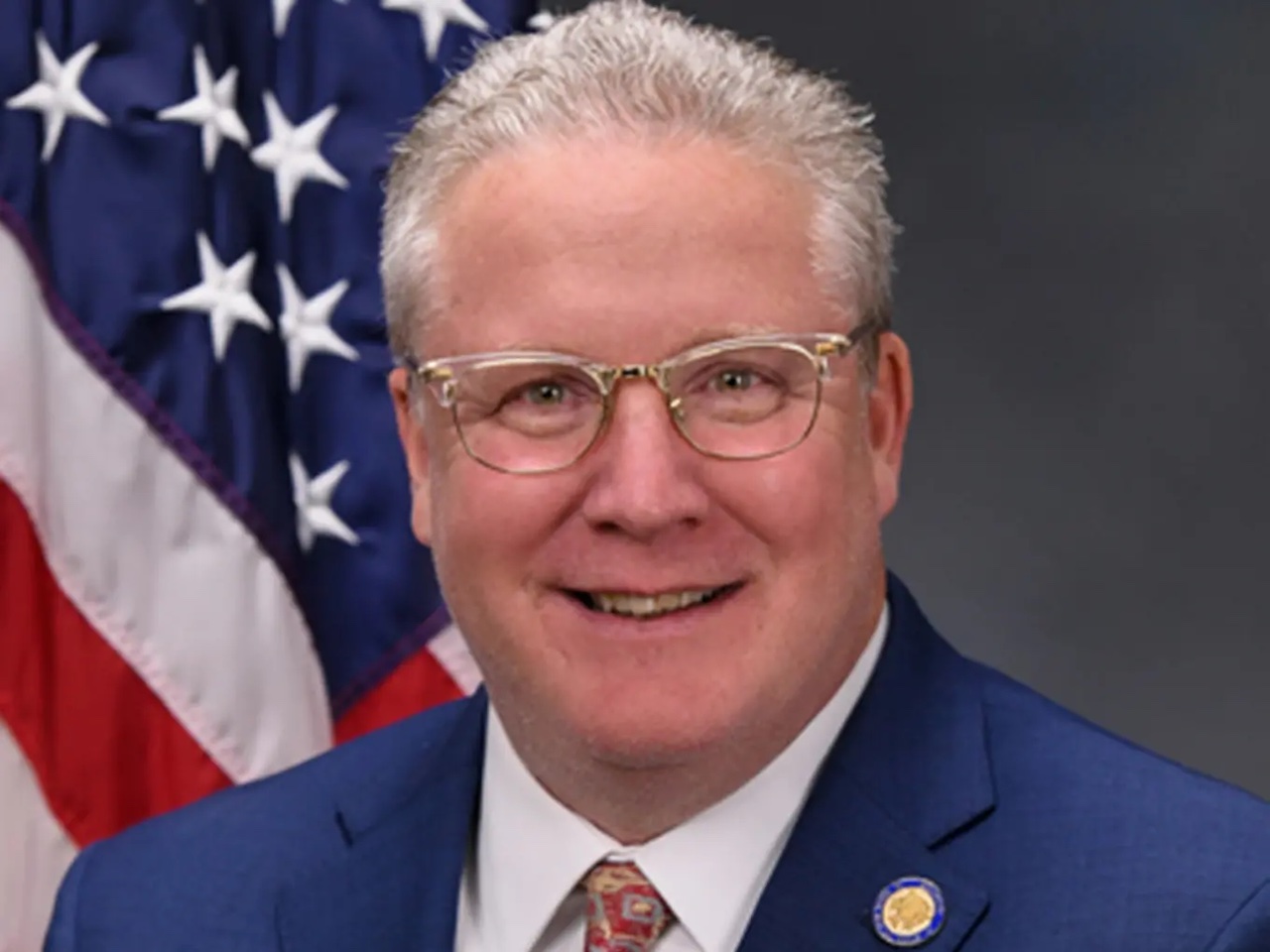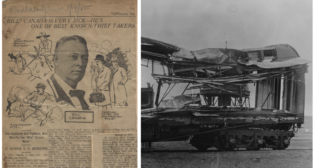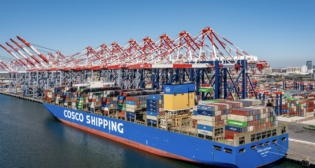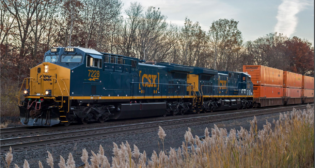
Report: State Lawmakers ‘Cracking Down’ on Rail Companies
Written by Carolina Worrell, Senior Editor
New York State Sen. Bill Weber says he want to "see the federal government do more to hold rail companies accountable."
Two weeks after a brush fire believed to be caused by a Norfolk Southern (NS) train on the Southern Tier route burned hundreds of acres in Schoharie and Otsego Counties in New York State, lawmakers, including Sen. Bill Weber (R-N.Y.), are introducing state legislation that would “up the penalties for rail companies who fail to keep train components, like braking systems, properly maintained,” according to a WRGB report.
“We’ve upped the penalties to $50,000 and not more than $250,000 for defective brakes and other defective train components,” Sen. Weber said, according to the report.
Weber says he began working on the legislation weeks ago “in response to multiple train safety incidents that occurred in the county,” including one involving a CSX rail line in Rockland County that officials say ignited two dozen brush fires, burning a total of around 70 acres, as well as the NS train derailment in East Palestine, Ohio, and that last week’s brush fires “only heightened the need for this legislation.”
“We had a CSX rail line that really had some sort of defective brake or wheel,” said Sen. Weber. “It was a four-to-five-mile stretch between Stony Point and Clarkstown where sparks were coming from under the train, and it spurred a fire.” According to the report, the fires also damaged some properties and caused 100 homes to be evacuated.
In Schoharie County, more than 100 fire/police personnel responded to last week’s brush fires in a more than 48-hour fire operation, according to the WRGB report.
According to the report, the second part of Weber’s legislation, which is also backed by Republican Assemblyman Chris Tague, who represents Schoharie County, includes “having rail companies pay back municipalities for the damages and man-hours if their trains cause an incident.”
“I can tell you I would definitely be interested in being a co-sponsor or the sponsor in the Assembly because I think they should be held accountable. It could have been much worse than what it was,” said Tague. But, as Democratic Assemblyman John McDonald pointed out, “There are concerns with enforcement and overlaps with federal government rules,” reported WRGB.
“There needs to be a culture of safety similar to the airline industry,” said McDonald. “The airline industry has a lot of rules and regulations. The FAA is very, very stringent on check lists, and maybe we need to be taking a much more stringent approach, but that’s going to involve the cooperation of the federal government because trains cross state boundaries.”
Weber says he wants to “see the federal government do more to hold rail companies accountable. We come to learn that there’s additional oversight that needs to be done on the federal level because, right now from what we understand, [railroads] really inspect their trains themselves.”
Federal Preemption
“The interplay between state and federal regulation has long been contentious,” said Railway Age Capitol Hill Contributing Editor Frank Wilner. “The 1976 Railroad Revitalization and Regulatory Reform (4-R) Act banned discrimination by state and local governments in assessing or taxing railroad property at higher levels than applicable on other commercial and industrial taxpayers, and from imposing other taxes on railroads in lieu of property taxes. In 2016, the U.S. Supreme Court strengthened that protection after the State of Georgia raised taxes on CSX property.
“The 1995 Interstate Commerce Commission Termination Act (ICCTA) stripped states of all authority to regulate intrastate rail rates, with the Surface Transportation Board (STB) given exclusive jurisdiction over interstate and intrastate rail rate regulation in the 48 contiguous states. The ICCTA also stripped states of authority over construction and abandonment of spur, industrial, and side tracks—even if wholly within a state.
“The general rule is that where federal oversight is established—by, for example, the STB or Federal Railroad Administration (FRA)—states are precluded from imposing their own regulatory arrangement. States, for example, may not regulate train speed or use of train horns and whistles because FRA has spoken on those issues.
“States, which once mandated minimum crew size on interstate freight trains (as many as five crew members, and sometimes even seven), began repealing those so-called full-crew laws during the 1970s (e.g., Arizona, California, Mississippi and North Dakota). In their place, railroads and their labor unions negotiated agreements still in force establishing two-person minimum crew size on all Class I railroads and many smaller ones. As there still is no federal regulation of minimum train-crew size, some states have imposed new mandates, although they are moot where there is existence of mirror-image collective bargaining agreements.
“There is understandable confusion now regarding this state legislative incursion. As shipper attorney Michael F. McBride suggests, at first impression this appears an attempt to regulate railcar wheels and brakes, which may well be preempted by existing FRA regulations. Moreover, as some 75% of the nation’s freight railcar fleet is shipper-owned, the proposed legislation appears to impact shippers, as well. Fires, moreover, have many causes, including ‘Acts of God’ when caused by lightning strikes that are not subject to civil liability. Whether this proposed legislation falls under the umbrella of permissible traditional environmental regulation may become an issue for the courts if the legislation becomes law.”



